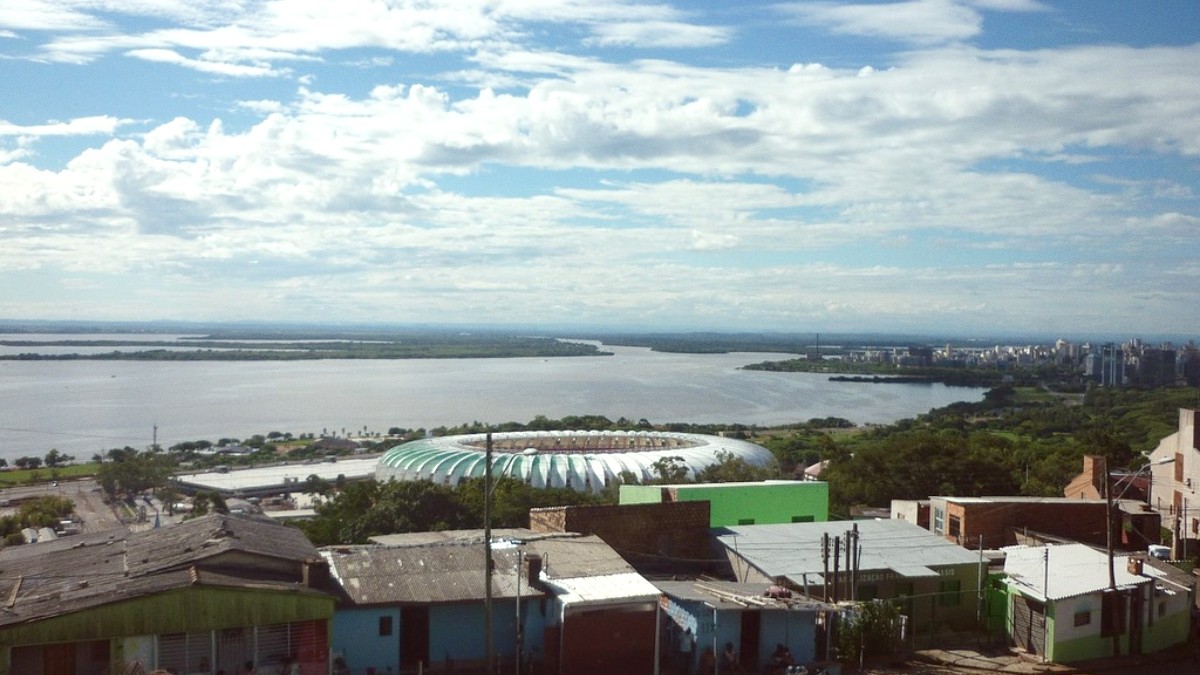
The South, Brazil
Porto Alegre is a destination for travelers seeking Brazil beyond its well-known beaches and rainforests. The city's lively cultural scene, many green spaces, and friendly atmosphere make it a rewarding place. Visitors find a city proud of its roots, sharing its stories, and offering a memorable visit.
Porto Alegre's history is rich, shaped by immigration, revolution, and cultural development. Immigrants from the Azores archipelago founded the city in 1772. These early settlers laid the groundwork for what became a major urban center in Southern Brazil.
During the Ragged Revolution (1835-1845), Porto Alegre became a stronghold for republican rebels. European immigrants, mainly Germans and Italians, arrived in large numbers during the 19th and 20th centuries. Their traditions infused local gaucho culture, creating an unique blend evident in cuisine and festivals.
Porto Alegre serves as a major urban center in Southern Brazil. It holds extensive green spaces and a strong sense of local identity. The city is an important industrial, commercial, and port hub. People recognize the city for its high quality of life and innovative public administration practices. It ranks highly in national indices for well-being and development. This draws residents and businesses.
The city hosts many universities. Research centers add to its intellectual prowess. Many cultural institutions thrive within its boundaries. These include museums, theaters, and galleries. This concentration of educational and cultural bodies makes Porto Alegre an intellectual and artistic melting pot. Ideas and creativity flow freely here.
A distinct charm, from traditional gaucho barbecue to contemporary art.
Offers serene escape and beautiful sunsets.
Local flavors, crafts, relaxation, and outdoor activity.
Inhabitants known as Gaúchos and Gaúchas welcome visitors.
More laid-back than larger Brazilian cities, yet maintains dynamic energy.
Porto Alegre’s combination of urban sophistication and traditional warmth gives a rewarding destination for travelers. It offers a window into an unique facet of Brazilian life, distinct from the coastal vibrancy of Rio or the vastness of São Paulo.
The city's commitment to urban green spaces further increases its appeal. It truly gives a memorable journey into the heart of Southern Brazil.
Porto Alegre works on cultural accessibility, making it enjoyable for various types of travel, whether seeking cultural immersion, natural beauty, or urban exploration.
The city’s past remains a continuous thread running through its present, shaping its identity and welcoming spirit. Buildings in the historic center are reminders of these past eras. Each brick and cobblestone tells a story of the city’s journey from a small settlement to a bustling metropolis.
Porto Alegre experiences a humid subtropical climate, classified as Cfa. This means hot summers, mild to warm winters, and relatively even rainfall throughout the year.
The city does not experience monsoons or hurricanes. Extreme temperatures in summer can exceed 38°C (100°F). Winters can bring cold fronts with strong winds. Occasional light frost occurs, but snow is extremely rare. Heavy summer thunderstorms cause localized urban flash floods. Recent years have seen more significant flooding events, notably in 2024, due to elevated river levels. Check local news and weather advisories for current conditions.
Hot and humid, 25°C to 35°C (77°F to 95°F). Occasional heatwaves over 38°C (100°F). Heavy thunderstorms common.
Mild and pleasant, 15°C to 25°C (59°F to 77°F). Humidity decreases. Ideal for sightseeing. Beautiful foliage.
Mild to cool, 10°C to 20°C (50°F to 68°F). Cold fronts below 10°C. Consistent rainfall, rarely snow.
Outdoor activities like Guaíba sunset cruises and park visits are most comfortable in Autumn (March-May) and Spring (September-November). Early summer (December) can also be pleasant. Cultural sites are good any time, but cooler months (June-August) make for more comfortable walking tours.
The local currency. Check current rates before and during your trip using reliable financial apps.
Exchange offices (casas de câmbio) available in city center and malls. Avoid airports for poor rates.
ATMs are widespread in banks/malls. Most establishments accept credit cards (Visa, MasterCard, Amex). Carry some cash for small vendors.
A 10% service charge usually appears on the bill. Optional to leave extra for exceptional service.
Tipping is not customary. Round up the fare if you wish.
Small tips (R$ 5-10 for bellhops, R$ 10-20/day for housekeepers) are appreciated but not expected. 10-15% of tour cost for good guide service.